9. November 28 (332) was among the Hawaians thought of as the
day when their 23-day long cycle of Lono (Rogo) was beginning. This
ought to have been 3 days after the Sun would have reached the right ascension
day of Antares
(*249, 329 = 355 - 26).
    
According to Manuscript E the Explorers (presumably the
nightside planets with the exception of Mars and Saturn)
returned home to Hiva in the day named Tagaroa Uri 25,
which nominally ought to be translated into
October 25 (298), when
Fomalhaut (the Mouth of the Fish) culminated (at 21h).
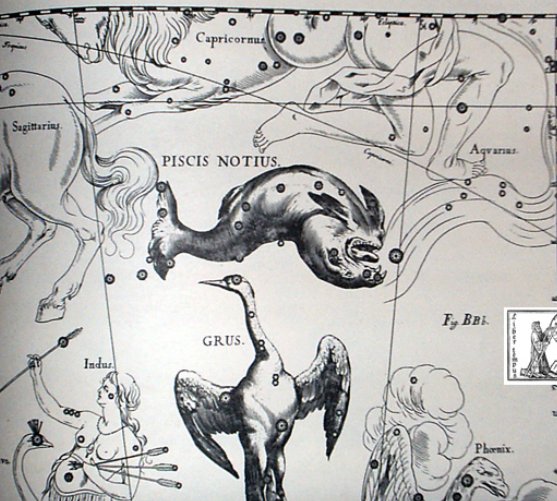
This was half a year after April 25 (115 = 298 - 183), which day
correspondingly ought to be translated into Vaitu Nui 25.
... The ancient names of the month were: Tua haro,
Tehetu'upú, Tarahao, Vaitu nui, Vaitu poru, He Maro, He Anakena,
Hora iti, Hora nui, Tagaroa uri, Ko Ruti, Ko Koró ...
... On the twenty-fifth day of the first
month (Vaitu Nui), Ira and Makoi set sail;
on the first day of June ('Maro'), the bow of Ira's
canoe appeared on the distant horizon, came closer and closer on
its course, and sailed along, and finally (one) could see the
(new home) land ... [E:17]
... Ira, Raparenga, Uure, Nonoma, and
Ringiringi got up [he ea] and left [went to, he oho]
the 'Dark abyss [te poko uri] of Hau Maka' (i.e., Rano
Kau), arrived at Hanga Te Pau, put the canoe into the water [he
hoa i te vaka], and sailed off to [went to, he oho]
Hiva, to Maori.
Ira left [for Hiva, for Maori, i ōho ai a Ira.ki hiva.ki
maori] on the twenty-fifth day of the month of October
('Tangaroa Uri') ... [E:86]
I have repeatedly tried to make sense of these dates, without
quite convincing myself. I tried to make use of the precession
in order to find out which stars might have been at the Sun
anciently at the dates corresponding to April 25 respectively to October 25,
according to extrapolations back in time-space from my assumed current rongorongo era. Now, however, I think
this must be doomed to fail because the essence of the Sun calendar
should not be
changed. The first month should always be Vaitu Nui (1) =
April (4) and the 7th month should always be October (→
'the 8th month') = Tagaroa Uri.
10 (October) - 4 (April) =
6 (half a year) = 7 (Tagaroa Uri) - 1 (Vaitu Nui)
Instead we should take notice of the fact that on ancient Hawaii the festival at the end of a
year's reign lasted 'for a month':
... A vestige of the practice of putting the
king to death at the end of a year's reign appears to have
survived in the festival called Macahity, which used to
be celebrated in Hawaii during the last month of the year. About
a hundred years ago a Russian voyager described the custom as
follows: 'The taboo Macahity is not unlike to our
festival of Christmas. It continues a whole month, during which
the people amuse themselves with dances, plays, and sham-fights
of every kind. The king must open this festival wherever he is.
On this occasion his majesty dresses himself in his richest
cloak and helmet, and is paddled in a canoe along the shore,
followed sometimes by many of his subjects. He embarks early,
and must finish his excursion at sunrise. The strongest and most
expert of the warriors is chosen to receive him on his landing.
The warrior watches the canoe along the beach; and as soon as
the king lands, and has thrown off his cloak, he darts his spear
at him, from a distance of about thirty paces, and the king must
either catch the spear in his hand, or suffer from it: there is
no jesting in the business. Having caught it, he carries it
under his arm, with the sharp end downwards, into the temple or
heavoo. On his entrance, the assembled multitude begin
their sham-fights, and immediately the air is obscured by clouds
of spears, made for the occasion with blunted ends. Hamamea
(the king) has been frequently advised to abolish this
ridiculous ceremony, in which he risks his life every year; but
to no effect. His answer always is, that he is as able to catch
a spear as any one on the island is to throw it at him
...
This concept of counting by months - i.e. changing from counting
sun-dates

to counting the from the faces of the Moon - was used
also in Manuscript E:
... They made camp [he noho] and
rested [he hakaora] at Ahu Akapu for two days. On the
twenty-ninth day of the month of August ('Hora Iti') they went
on to Pu Pakakina. They arrived, remained there, and gave the
name 'Pu Pakakina A Ira'. They remained one month in Pu Pakakina
...
[E:31]
... On the first day of the month of
September ('Hora Nui') they went up to the yam plantation of
Kuukuu - i te raa Po rae o hora nui i iri ai ki runga ki the
uhi a kuukuu ... [E:46].
... They all went up to the yam plantation of
Kuukuu.
Once they had arrived there, Ira stayed for one month [etahi
marama] ... [E:47]
The day for the arrival of the Sun king (Hotu A Matua)
Hotu. Ta.: hotu, to produce fruit, Sa.: fotu,
id. Mgv.: akahotu, the September season. Churchill. H.:
Hoku, Night of the full moon. When this moon set before
daylight it was called Hoku Palemo, Hoku that slips away.
When it set after daylight it was called Hoku Ili,
grounded Hoku. Ka mahina o Hoku, the full moon of the
night Hoku. Cf. hōkū, star. Hō kū,
star. (PPN fetu'u). Wehewehe.
... When this tremendous task had been accomplished Atea
took a third husband, Fa'a-hotu, Make Fruitful. Then
occurred a curious event. Whether Atea had wearied of
bringing forth offspring we are not
told, but certain it is that Atea and her husband
Fa'a-hotu exchanged sexes. Then the [male] eyes of Atea
glanced down at those of his wife Hotu and they begat
Ru. It was this Ru who explored the whole earth and
divided it into north, south, east, and west
...
was 10 days prior to the day when the
Explorers left Easter Island. With the arrival of the Sun the
nightside stars - even the bright planets - would gradually fade from
view.
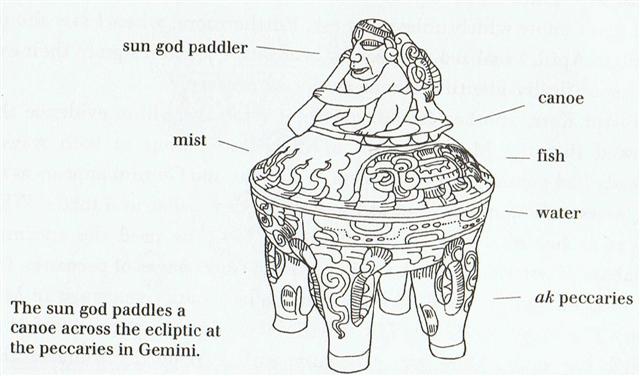
This ought (ideally) to be a quarter of the year away from
the solstices.
November 28 (322) + 23 = 355 (December 21) =
September 22
(265) + 90 = 255 (September
12) + 100.
|
Sept 12 (255 = 73
+ 182) |
|
 |
|
MANUS
CATENATA (*364 - *6) |
|
March 14 (3-14
→ π) |
|
°March 10 (*354 =
*358 - *4) |
|
'Febr 15 (46 = 73
- 27) |
|
"Febr
1 (32 = 73 - 41) |
|
JAN 9 (*294 = *
358 - *64) |

|
Nov 23 |
24 |
25 (→
ANTARES) |
26 (*250) |
27 (→
150 + 181) |
28 (→ 329
+ 3) |
 |
 |
 |
 |
 |
 |
|
Ea1-10 |
Ea1-11 |
Ea1-12 |
Ea1-13 |
Ea1-14 |
Ea1-15 |
|
kua rere ki te
marama -
koia ra -
kua oho ki te marama |
ko agaagata aro huri a hiva |
kua noho i roto i to
vai |
ka
huki koe - mai tae
huki hia |
ko te tagata
vero ki tai |
|
Aga. Work; to work, to
make, to build, to create: O te atua i-aga-ai
i te ragi, i te henua. God made heaven and
earth. Vanaga. Agahuru (hagahuru,
hagauru). Agai (hagai).
Agatahi (aga-tahi) one, (hagatahi);
agatahi ahi atu, day before yesterday;
hagatahi ahi, yesterday. Churchill.
Aro. Face, front, side
(of a figure); ki te aro o ..., to
the front of ... Vanaga. Presence, body,
frontispiece; ki te aro, face to face. P
Pau.: aroga, the visage; ki te aroga,
opposite. Mgv.: aro, presence, before;
i te aro, in the presence of. Mq.: aó,
face, in the presence of, before. Ta.: aro,
face, front, presence, view. It is probable that
more than one word is confounded in alo.
The significations which appear in Southeast
Polynesia are most likely derived from a
Tongafiti alo and do not appear in
Nuclear Polynesia. The alo belly and
alo chief which do occur in Nuclear
Polynesia are also probably Tongafiti, for in
Samoa and Tonga they are honorific and applied
only to folk of rank, a good indication of
borrowing by the Proto-Samoans from Tongafiti
masters. Churchill. In the Hawaiian group, the
western portion or side of an island was called
'the front', ke alo, of the land, and the
eastern side was called 'the back', ke kua.
The reason of such designations must be sought
in the fact of the arrival of the inhabitants
from the west. Fornander.
Huri. 1. To turn
(vt.), to overthrow, to knock
down: huri moai, the overthrowing of the
statues from their ahus during the period
of decadence on the island. 2. To pour a
liquid from a container: ka huri mai te vai,
pour me some water. 3. To end a lament, a
mourning: he huri i te tagi, ina ekó tagi
hakaou, with this the mourning (for the
deceased) is over, there shall be no more
crying. 4. New shoot of banana: huri
maîka. Vanaga. 1. Stem. P Mgv.: huri,
a banana shoot. Mq.: hui, shoot, scion.
2. To turn over, to be turned over onto another
side, to bend, to lean, to warp; huri ke,
to change, to decant; tae huri ke,
invariable; huri ke tahaga no mai, to
change as the wind; tae huri, immovable;
e ko huri ke, infallible; huhuri,
rolling; hakahuri, to turn over;
hakahuri ke, to divine. P Pau.: huri,
to turn. Mgv.: huri, uri, to turn
on one side, to roll, to turn upside down, to
reverse. Mq.: hui, to turn, to reverse.
3. To throw, to shoot. 4. To water, to wet. 5.
To hollow out. Hurihuri: 1. Wrath, anger;
kokoma hurihuri, animosity, spite, wrath,
fury, hate, enmity, irritable, quick tempered,
to feel offended, to resent, to pester;
kokoma hurihuri ke, to be in a rage. 2. (huri
4) hurihuri titi, to fill up. 3. To
polish. 4. (uriuri). Hurikea, to
transfigure, to transform. Churchill. Mq.
huri, resemblance. Sa.: foliga, to
resemble. Churchill.
Hiva. Name of the country
from where, according to tradition, came the
Polynesian immigration of Hotu Matu'a;
nowadays, this name designates any continent or
foreign country: tagata Hiva, foreigner,
person from the mainland. Vanaga. Strange,
alien, foreign; a stranger; kuhane hiva,
Holy Ghost; hakahiva: mata hakahiva,
to look back (? hakahira). Mq., Mgv.:
hiva, iva, a stranger, a person from
another district or country. Pau.: pure-hiva,
a butterfly. Churchill. H.: 1. Entirely black,
as of pigs offered to the gods, a desirable
blackness contrasting with uli and 'ele'ele,
which have pejorative connotations. 2. Choice.
3. A term qualifying coconuts and kava. Polo
hiwa, dark, glistening black, as clouds or
tapa. Ua hala i ke ao polohiwa a Kāne,
passed to the dark clouds of Kāne (death).
Hiwa hiwa, precious, beloved, esteemed,
petted, darling, indulged; favorite. Ka
Mesia, ka hiwahiwa a ke Akua, the Messiah,
the chosen of God. Ho'o hiwa hiwa to
honor, adorn, decorate; to display, as the flag;
to treat as a favorite; festive. He mea
ho'ohiwahiwa i ke akua, a thing to honor the
gods. 'O ka mea ho'ohiwahiwa i kāna kauā mai
kona wā 'u'uku mai, he who delicately brings
up his servant from his childhood. Wehewehe.
Iva. Nine. P Mgv., Mq., Ta.: iva,
id. Churchill.
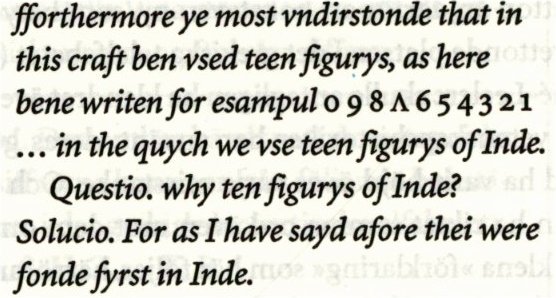 |
|
Net-19 (Crow)
AIN (Eye) =
ε
Tauri,
θ¹
Tauri,
θ²
Tauri (65.7) |
No star listed (66) |
No star listed (67) |
Rohini-4 (The Red One)
/
Pidnu-sha-Shame-4 (Furrow
of Heaven)
/
ANA-MURI-2 (Rear pillar - at the foot of which
was the place for tattooing)
ALDEBARAN = α Tauri
(68.2),
THEEMIN = υ² Eridani
(68.5) |
No star listed (69) |
No star listed (70) |
|
... There was no water in the village. The lakes
and rivers were dry. Raven and Crow, two young
girls who were having their first menstrual
courses, were told to go and draw water from the
ocean. Finding the journey too long, Raven
decided just to urinate into her basket-bucket.
She decieved no one and was severly scolded.
Crow returned much later but with drinking
water. As a punishment, Raven was condemned
never to find water in the summer; only in
winter would she find something to drink. For
that reason the Raven never drinks during the
hot months; she speaks with a raucous voice
because of her dry throat ... |
|
MARCH 22 |
23 |
24 |
25 (84) |
26 |
27 |
Counting from November 28 (332) to the solstice in December 21 (355)
there were only 23 days, but the last month of the year, it was said,.should
be counted
from the return of the Pleiades to visibility, which ideally should
be 10 days
earlier than the beginning of the cycle of Lono.
November 14, which according to my calculations would be the night when the
Full Moon (Hotu) reached the right ascension line of the Foundation Stone
(Alcyone), could be regarded as night number 36 if counting down
to December 20 (354 = 12 * 29½ = 318 + 36). Changing to the Hawaiian view there
were 36 - 4 = 32 nights to be counted down from November 18 (322).
|
Nov 14 (318) |
15 (137 + 182) |
16 ( → DRAMASA) |
17 (504 - 183) |
18 (320
+ 2) |
|
VISIBLE CLOSE TO THE FULL MOON: |
|
Hairy Head-18 (Cockerel)
/
Temennu-3 (Foundation Stone)
ALCYONE
(56.1),
PLEIONE (28 Tauri), ATLAS (27 Tauri)
(56.3) |
MENKHIB (Next to the Pleiades =
ζ
Persei
(57.6)
PORRIMA (γ Virginis) |
ZAURAK (Boat) = γ Eridani
(58.9) |
λ Tauri (59.3), ν Tauri (59.9) |
4h (60.9)
JĪSHUĬ = λ
Persei
(60.7)
COR
CAROLI (α Canum Ven.) |
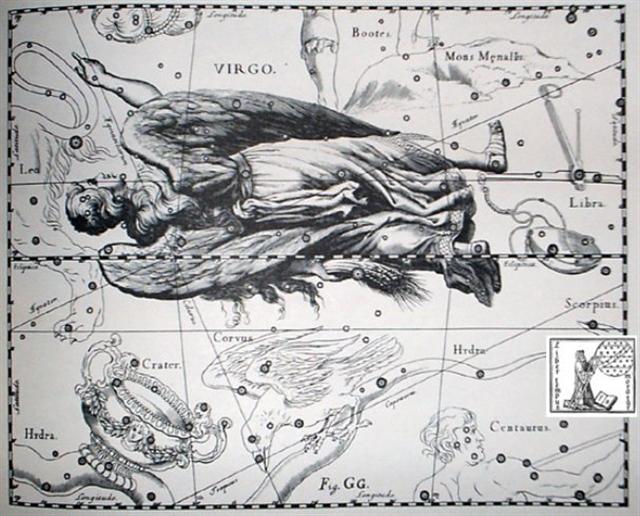
... Vainamoinen set about building a boat, but when it came
to the prow and the stern, he found he needed three words in
his rune that he did not know, however he sought for them
...
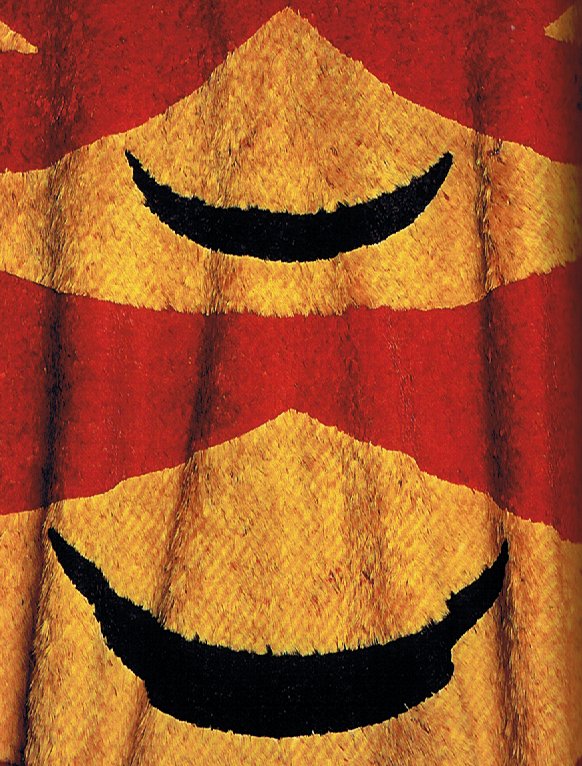 |
|
May 16 (501) |
17 |
18 (74
+ 64) |
19 (139) |
20 (20 weeks) |
|
'April 19 |
20 |
21 (111) |
22 (139 - 27) |
23 |
|
"April 5 |
6 |
7 (88 = 74 + 14) |
8 |
9 (99 = 140 - 41) |
|
MARCH 13 |
14 → 3-14 |
15 (74) |
16 |
17 |
 |
 |
 |
 |
 |
|
Ea1-1 |
Ea1-2 |
Ea1-3 |
Ea1-4 |
Ea1-5 |
|
E hakamata hia
tu mai tae vahu ku huku hia te
vaha ko te tagata - kua mau ki te
hukiga |
|
Va.
1. Hakava, judge, judgement. T Mgv.: akava,
to judge, to pass sentence. Pau.: haava, to judge, to
conjecture. Ma.: whakawa, to charge with crime, to
condemn. Ta.: haava, to judge. 2. Hakava, to
speak. P Mgv.: va, to speak. Mq.: vaa, to
chatter like a magpie. The Marquesan retains more of the
primal sense although the simile is an alien importation. In
Samoa va means a noise, in Tonga va is a
laughing noise, in Futuna va is the disorderly cry of
tumult, and probably it is the initial element of Viti
wa-borabora to speak quickly and confusedly as when
scolding. Its only identification in Tongafiti territory is
Hawaii wawa the confused noise of a tumult ...
Churchill. Ta.: va, space between the leaves in a
roof. Sa.: va, space between. Ma.: wa,
interval. Churchill.
Hu. 1. Breaking of wind. T Mgv.,
uu, to break wind. Mq., Ta.: hu, id. 2. Whistling
of the wind, to blow, tempest, high wind. P Pau.: huga,
a hurricane. Churchill. Mgv.: hu, to burst, to
crackle, to snap. Ha.: hu, a noise. Churchill.
Ha. 1. Four. 2. To breathe.
Hakaha'a, to
flay, to skin. Vanaga. 1. Four. P Mgv., Mq., Ta.: ha, id.
2. To yawn, to gape. 3. To heat. 4. Hakaha, to skin,
to flay; unahi hakaha, to scale fish. Mgv.: akaha,
to take to pieces, to take off the bark or skin, to strip
the leaves off sugarcane. 5. Mgv: ha, sacred,
prohibited. Mq.: a, a sacred spot. Sa.: sa,
id. Churchill.
Vaha.
Hollow; opening; space between the fingers (vaha rima);
door cracks (vaha papare). Vahavaha, to fight,
to wrangle, to argue with abusive words. Vanaga. 1. Space,
before T; vaha takitua, perineum. PS Mgv.: vaha,
a space, an open place. Mq.: vaha, separated, not
joined. Ta.: vaha, an opening. Sa.: vasa,
space, interval. To.: vaha, vahaa, id. Fu.:
vasa, vāsaà, id.
Niuē: vahā. 2.
Muscle, tendon; vahavaha,
id. Vahahora (vaha
1 - hora 2),
spring. Vahatoga
(vaha 1 -
toga 1), autumn. 3. Ta.:
vahavaha, to
disdain, to dislike. Ha.: wahawaha,
to hate, to dislike. Churchill.Vaha.
Hollow; opening; space between the fingers (vaha
rima); door cracks (vaha papare). Vahavaha,
to fight, to wrangle, to argue with abusive words. Vanaga.
1. Space, before T; vaha takitua, perineum. PS Mgv.:
vaha, a space, an open place. Mq.: vaha,
separated, not joined. Ta.: vaha, an opening. Sa.:
vasa, space, interval. To.: vaha, vahaa,
id. Fu.: vasa, vāsaà,
id. Niuē: vahā.
2. Muscle, tendon; vahavaha,
id. Vahahora (vaha
1 - hora 2),
spring. Vahatoga
(vaha 1 -
toga 1), autumn. 3. Ta.:
vahavaha, to
disdain, to dislike. Ha.: wahawaha,
to hate, to dislike. Churchill. |
|
→
INVISIBLY CLOSE TO THE
SUN: |
|
π
Cor. Borealis,
UNUK ELHAIA (Necks of the Serpents) =
λ
Serpentis
(238.1),
CHOW =
β
Serpentis
(238.6) |
κ
Serpentis (239.3),
δ
Cor. Borealis,
TIĀNRŪ =
μ
Serpentis
(239.5),
χ
Lupi, (239.6),
ω
Serpentis (239.7),
BA (= Pa) =
ε
Serpentis,
χ
Herculis (239.8).
κ
Cor.
Borealis, ρ Serpentis (239.9) |
λ
Librae (240.0),
β
Tr. Austr. (240.3),
κ
Tr. Austr. (240.4),
ρ
Scorpii (240.8)
*199.0 =
*240.4 - *41.4 |
Iklīl al Jabhah-15 (Crown of the Forehead)
/
Anuradha-17 (Following
Rādhā)
/
Room-4 (Hare)
ξ
Lupi,
λ Cor. Bor.(241.1),
ZHENG =
γ
Serpentis,
θ
Librae (241.2),
VRISCHIKA =
π
Scorpii
(241.3),
ε
Cor.
Borealis (241.5),
DSCHUBBA
(Front of Forehead) = δ Scorpii
(241.7), η Lupi (241.9) |
υ
Herculis (242.3),
ρ
Cor. Borealis (242.4),
ι
Cor. Borealis (242.5),
θ
Draconis (242.6),
ξ
Scorpii (242.7)
SCHEDIR (Breast) α
Cassiopeiae
*201.0 = *242.4 - *41.4 |
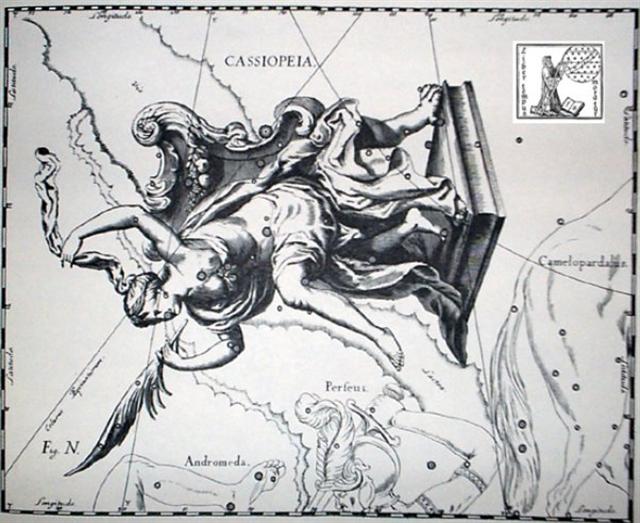
... In the morning of the world, there
was nothing but water. The Loon was calling, and the old man
who at that time bore the Raven's name, Nangkilstlas,
asked her why. 'The gods are homeless', the Loon replied.
'I'll see to it', said the old man, without moving from the
fire in his house on the floor of the sea. Then as the old
man continued to lie by his fire, the Raven flew over the
sea. The clouds broke. He flew upward, drove his beak into
the sky and scrambled over the rim to the upper world. There
he discovered a town, and in one of the houses a woman had
just given birth. The Raven stole
the skin and form of the newborn child. Then he began to cry
for solid food, but he was offered only mother's milk ...
→
Tea, breast milk. |
|
Nov 19 (→ 355 - 32) |
20 (324) |
|
VISIBLE CLOSE TO THE
FULL MOON: |
|
υ Persei (61.2) |
BEID (Egg) =
ο¹
Eridani
(62.2),
μ
Persei (62.8)
VINDEMIATRIX ( ε Virginis) |
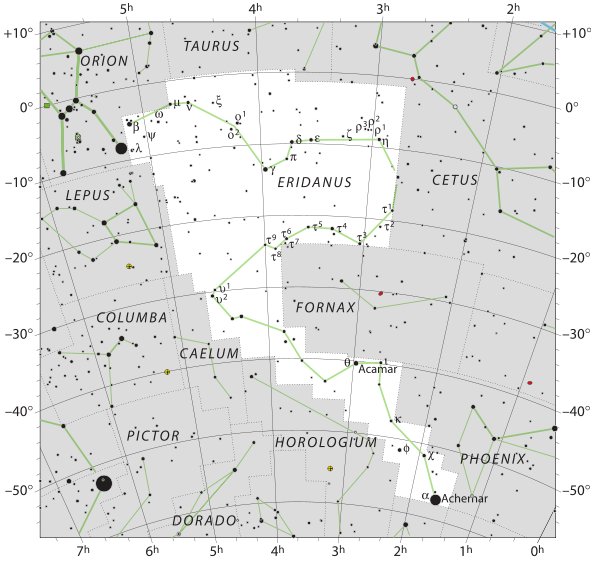 |
|
May 21 (365 + 141 =
506) |
22 (*62) |
|
'April 24 (506 - 27 =
479) |
25
(*35 = 115 - 80) |
|
"April 10 (100) |
11
(*21) |
|
MARCH 18 (442) |
19 (78) |
 |
 |
|
Ea1-6 |
Ea1-7 |
|
rere te toki rere ki uta |
rere ki te vao |
|
Uta.
Higher up (from the coast, or from another
place); i uta era, further up, up there; ki î
te îka i uta, as there are lots of fish on the
beach. Vanaga. 1. Inland, landward; paepae ki uta,
to strand, to run aground; mouku uta, herbage. 2.
To carry; uta mai, to import; hakauta, to
give passage. Campbell.
Vao.
Mgv.: vao, uninhabited land. Ta.: ?
[obliterated text] ... of the valleys. Mq.: vao,
bottom of a valley. Sa.: vao, the bush. Ma.:
wao, the forest. Churchill.
Honui.
1. Person worthy of respect, person of authority. 2.
Livelihood, heirloom, capital; ka moe
koe ki toou hônui, you must marry to ensure your
livelihood (said to a little girl); he hônui mo taaku
poki, this is the heirloom for my son. Vanaga. Great
(hoonui); honui, chief T.; tagata
hoonui, personage; hakahonui, to praise, to
commend. Churchill.
|
|
→
INVISIBLY CLOSE TO
THE SUN: |
|
16h (243.5)
ACRAB (Scorpion) = β Scorpii,
JABHAT AL ACRAB (Forehead of the Scorpion) = ω Scorpii
(243.3), θ Lupi,
RUTILICUS = β Herculis
(243.5),
MARFIK (Elbow) = κ Herculis
(243.7), φ Herculis (243.8) |
ψ
Scorpii (244.6),
LESATH (Sting) =
ν
Scorpii
(244.8) |
 |
|
Nov 21 (506 - 181
= 325) |
→
22 (80 +
242 + 4 = 326) |
|
VISIBLE CLOSE TO
THE FULL MOON: |
|
Al Dabarān-2 (The
Follower)
HYADUM I =
γ
Tauri (63.4)
*22.0 = *63.4 - *41.4 |
HYADUM II = δ¹ Tauri
(64.2) |
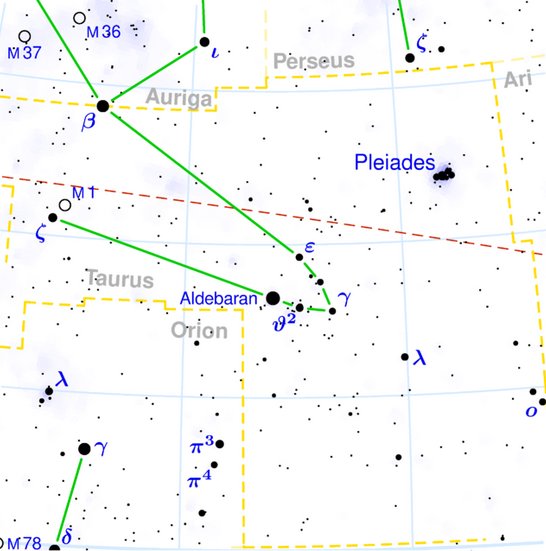 |
|
May 23 (508 = 444
+ 64 = *63) |
24 (*64 = 144 -
80) |
|
'April 26 (481 =
508 - 27) |
27 (*37 = *64 -
*27) |
|
"April 12 (*22) |
13 (144 - 41 =
103) |
|
MARCH 20 (*364 =
444 - 80) |
21 (80 = 144 -
64) |
 |
 |
|
Ea1-8 |
Ea1-9 |
|
rere te toki |
rere ki hau tea - eko te toki |
|
Toki.
Small basalt axe. Vanaga. Stone adze. Van
Tilburg. Ha'amoe ra'a toki = 'Put the adze to
sleep' (i.e. hide it in the temple during the
night). Barthel. Month of the ancient Rapanui
calendar. Fedorova according to Fischer. To'i.
T. Stone adze (e to'i purepure = with the
wounderful adze). Henry. The Araukan Indians in the
coastal area of northern Chile, have customs similar
to those on the Marquesas and in both areas toki
means adze according to José Imbelloni. The Araukans
also called their chief of war toki and the
ceremonial adze symbolized his function and was
exhibited at the outbreak of war. In Polynesia
Toki was the name of a chief elevated by the
Gods and his sign was the blade of a toki.
Fraser. Axe, stone hatchet, stone tool ...; maea
toki, hard slates, black, red, and gray, used
for axes T. P Pau.: toki, to strike, the edge
of tools, an iron hatchet. Mgv.: toki, an
adze. Mq.: toki, axe, hatchet. Ta.: toi,
axe. Churchill. A Maori saying: he iti toki, e
rite ana ki te tangata = though the adze be
small, yet does it equal a man. (Starzecka) |
|
→
INVISIBLY
CLOSE TO THE SUN: |
|
χ
Scorpii (245.1),
YED PRIOR (Hand in Front) =
δ
Ophiuchi,
δ
Tr.
Austr. (245.5) |
YED POSTERIOR (Hand Behind) =
ε
Ophiuchi,
RUKBALGETHI SHEMALI (Northern Knee of the Giant) =
τ
Herculis
(246.6).
δ
Apodis (246.7),
ο
Scorpii (246.8) |
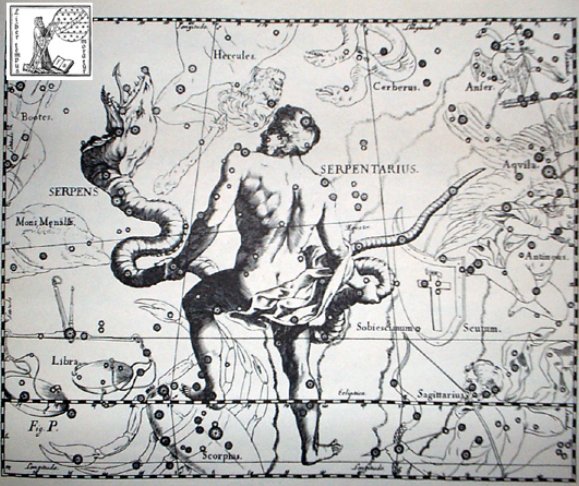 |
November 23 (327) should according to my guess be at Ea1-10
= 5 days before November 28 (332). The Hawaiians had 23 days
from the beginning of their cycle of Lono to the
December solstice. And, as we have noted, 64 (precessional days
down to the time of the Golden Bull) - 23 = 41 (precessional
days down to the era of Bharani) - as if reflections
in a hall of mirrors. Which is all very well because mirrors
will help us reflect in order to better understand.
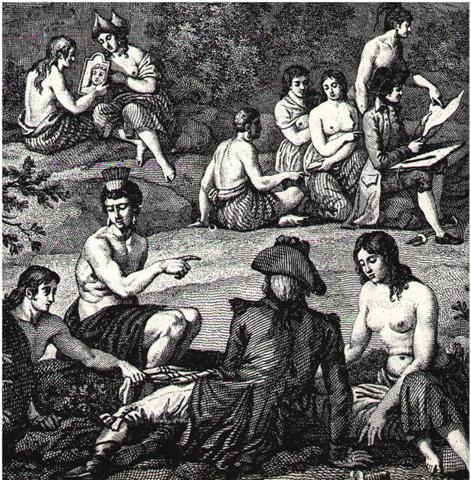
|


























